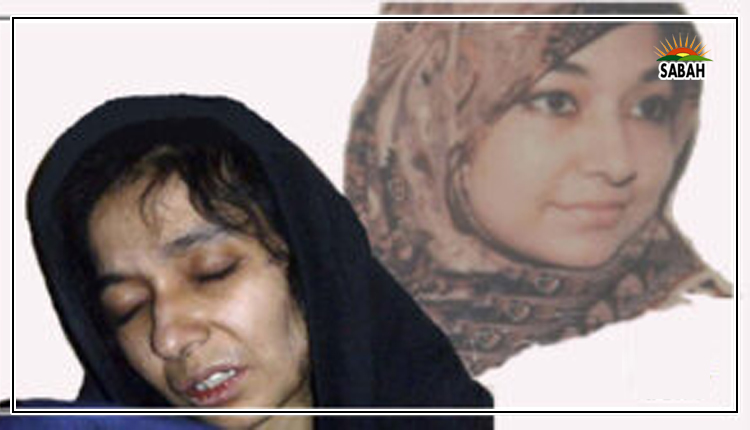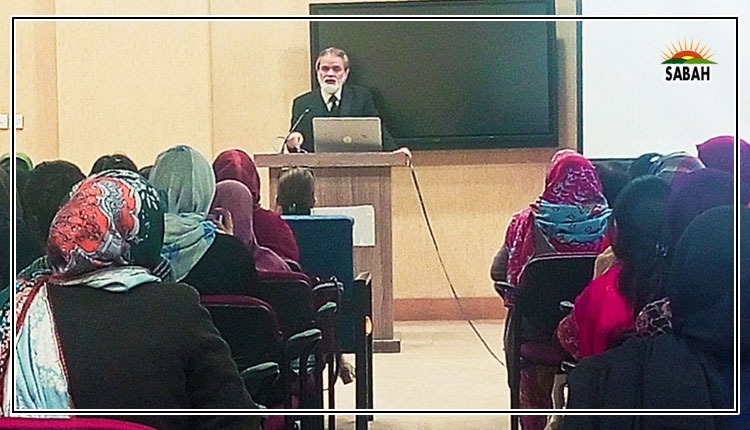Domestic violence legislation ensures justice delivery and protection of women: CJ FSC Dr. Syed Muhammad Anwer
RAWALPINDI, Dec 12, (SABAH): The provincial laws against domestic violence constitute major steps towards ensuring delivery of justice and protection of women according to Shariah, which asserts that violence against women is forbidden in all forms.
While domestic violence is being normalized as a social norm in Pakistan, it is the responsibility of the Muslim society as a whole to take small steps, shoulder to shoulder, in the right direction to change the non-Islamic societal structure, standards, customs, and approaches, along with correct implementation of law.
This was underscored by the Acting Chief Justice and Aalim Judge of Federal Shariat Court (FSC), Dr. Syed Muhammad Anwer, during his lecture on domestic violence in the context of the recent judgment of the FSC passed in favor of the Punjab Protection of Women against Violence Act, 2016. The lecture was held at Fatima Jinnah Women University (FJWU), Rawalpindi, with the collaboration of Institute of Policy Studies (IPS), Islamabad.
Dr. Anwer emphasized that Islam gave women their rights much before the West. The only problem is that Islamic principles and commands have not been understood, analyzed, and implemented in their true sense. In this context, it is an achievement that such legislation, which is in line with the teachings of the holy Qur’an and Sunnah, has been implemented now to provide comprehensive protection to women in Pakistan against various crimes. He argued that the widespread confusion and misconceptions about women’s rights in Islam are because of the shallow understanding and misinterpretation of Islamic commands.
He highlighted that Qur’an’s verses demand a deeper understanding and analysis. It is the responsibility of law students, law practitioners, and Muslim society as a whole to learn the teachings of Islam holistically in the context in which these are given and create awareness and formulate informed decisions.
Criticizing the influence and wrong dictation of Western thoughts in Muslim societies, he emphasized that Islam allows women to agitate for every genuine right and contact the relevant authorities for these rights. No other nation or ideology should be allowed to dictate Muslim women because Islam itself is a complete code that does not depend on any interpretation of the West.
He further stressed that Islam leaves no lacunae for Muslims to be apologetic or reactionary. Instead, they should analyze the situation deeply, see where they stand vis-à-vis Islamic teachings, devise and implement Shariah law in the true sense, and shoulder responsibility to teach the true meaning of Islam and inculcate good and positive impact in society and the world through their conduct with women.
Dr. Azra Yasmeen, dean Faculty of Law, Commerce Management, and Administrative Sciences, FJWU, highlighted the role of law students as agents of change. She maintained that students must expand their knowledge base, learn to question, and understand issues logically to bring a constructive change in society in the future.












